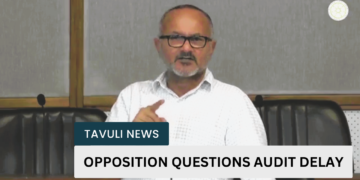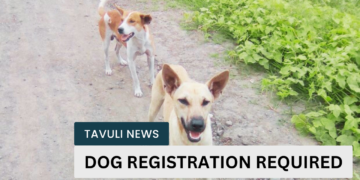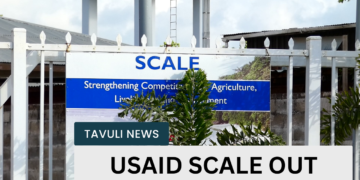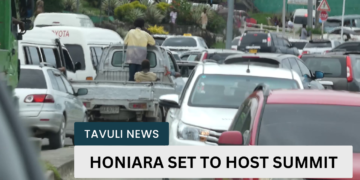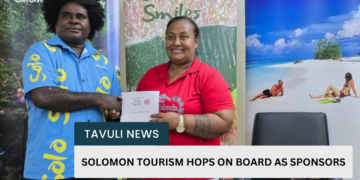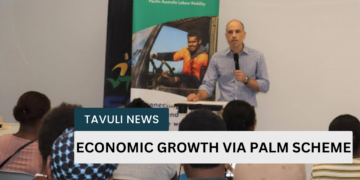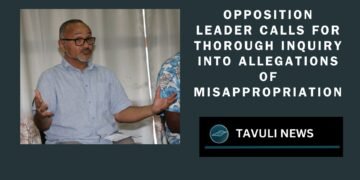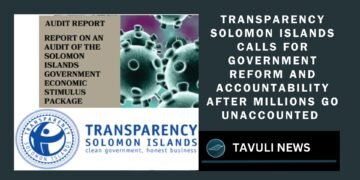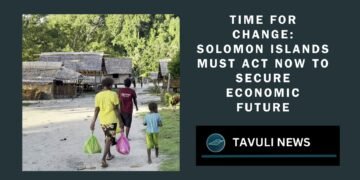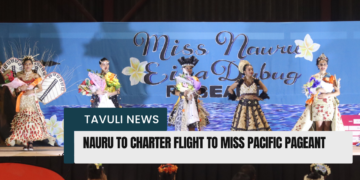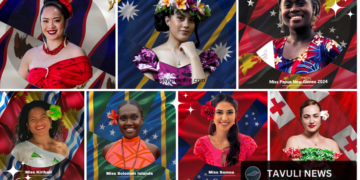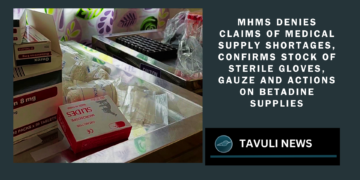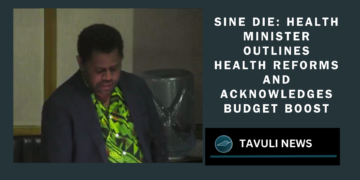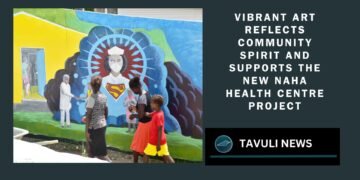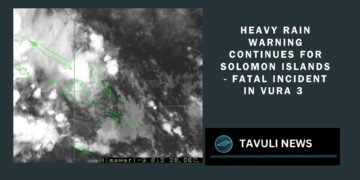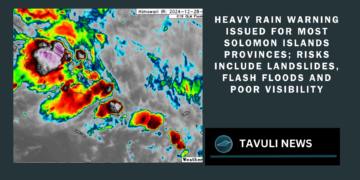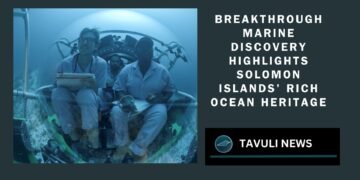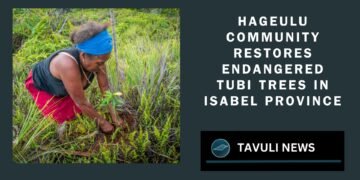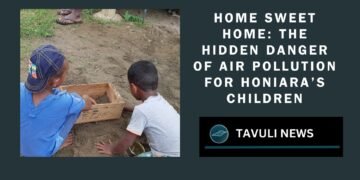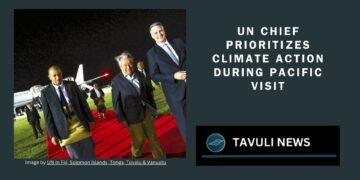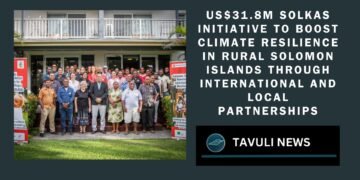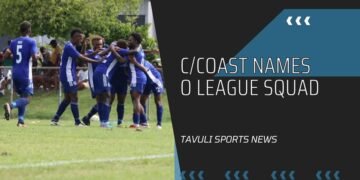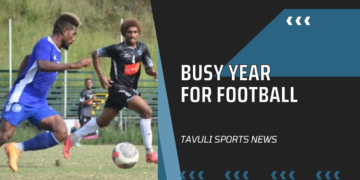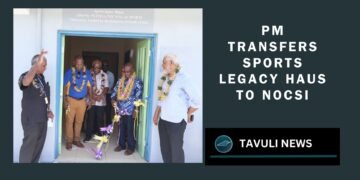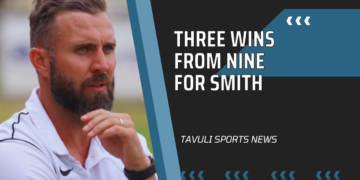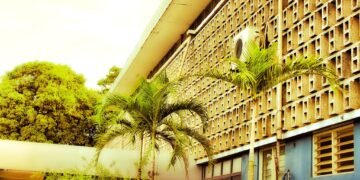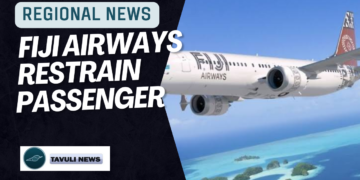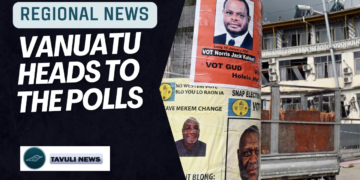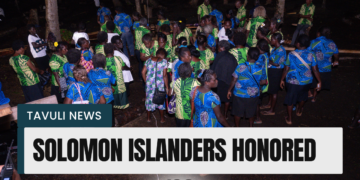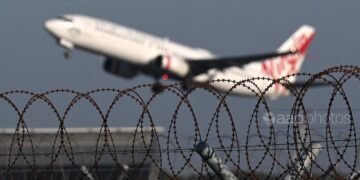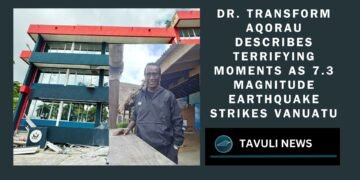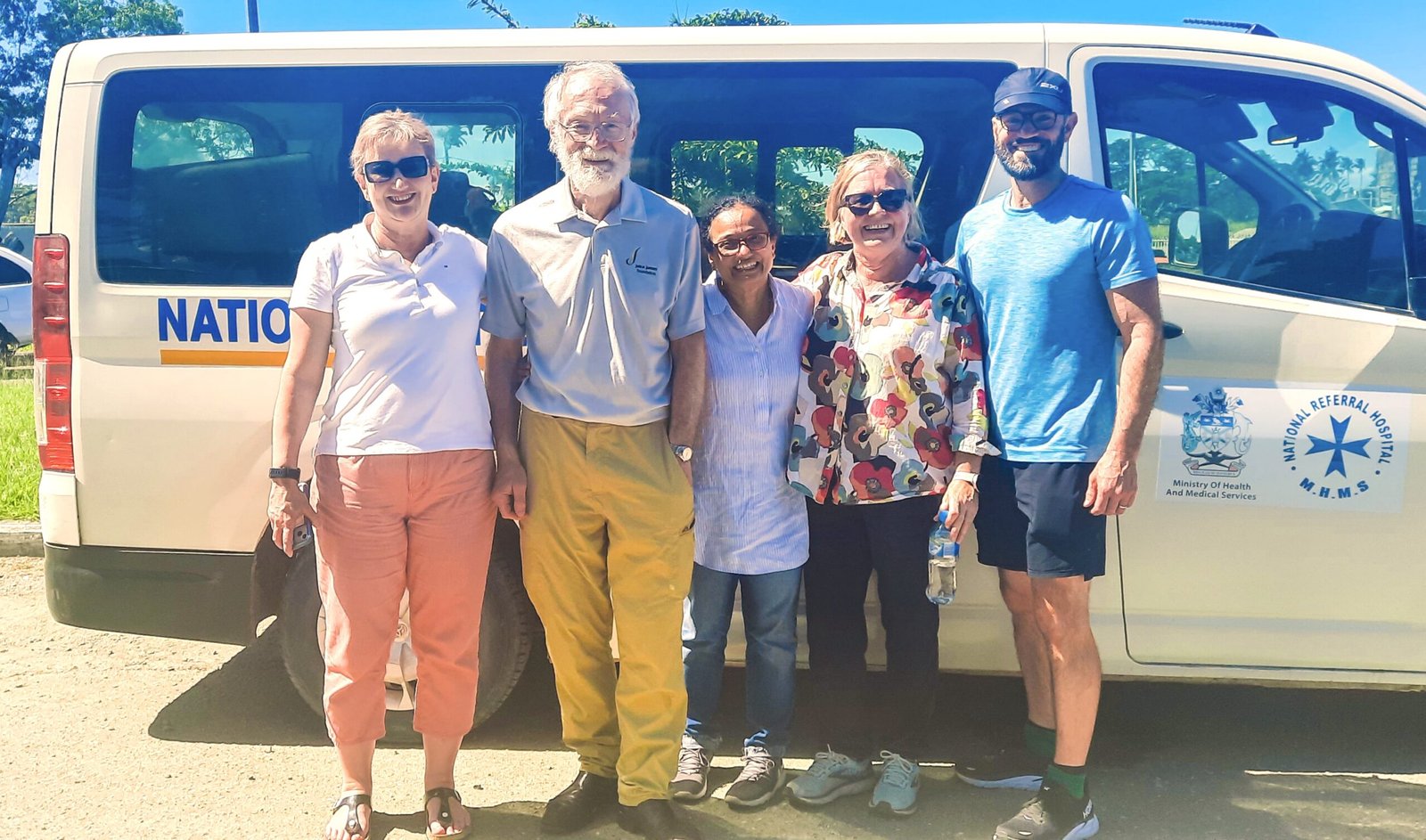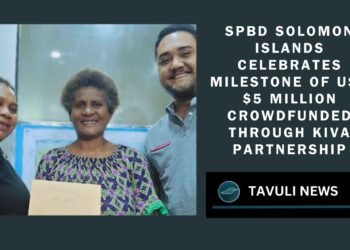Volunteer surgical team based in Canberra, Australia is working with the team from the National Referral Hospital to perform surgery on children with complex urinary and gastro-intestinal medical issues as well as general surgical problems. Australian John James Foundation pediatric specialist surgical team travel to Honiara was made possible with support from the local airline.
Arriving in Honiara on Flight IE701 today were surgeons Professor David Croaker and Dr Celine Hamid, Anesthetists Dr James French and Dr Dave Rawson, and Nurses Lisa Hazell and Elizabeth Hearn. Prior to the COVID-19 pandemic, the JJF pediatric surgical team traveled to Solomon Islands twice a year.
“When we heard of the surgical team’s plan to return again to continue their work assisting the medical needs of children in the Solomon Islands, we were only too pleased to assist,” said Solomon Airlines CEO Gus Kraus.
“As well as bringing their leading medical expertise, they also bring their own equipment and substantial surgical supplies so as not to deplete local reserves,” he said.
Kraus said the Airline is pleased to assist the team and fly their equipment and supplies from Australia. Pediatric surgery teams from the Canberra Hospital first started visiting Honiara in 2015 staying between 10 and 14 days and performing up to 30 operations during each visit.
“In the Solomon Islands, from our very first visits, we have had a relationship with the surgeons Dr Rooney Jagilley at the National Referral Hospital in Honiara, and with Dr Douglas Pikacha, also at the NRH until his retirement a few years ago,” said Adjunct Professor David Croaker, leader of the team.
“We also very much appreciate the support of the anesthetic department at the National Referral Hospital, Dr Kaeni Agiomea and his colleagues, as well as the hospital staff in general.
“The cases we assist are mainly significant pediatric surgical reconstructive cases, where care has been safely carried on until a specialist visit can be made,” Professor Croaker said.
“Benign tumors and various sorts of malformations of the bowels are common examples.
“In Australia we also support the Rotary Oceania Medical Aid for Children ROMAC program of Rotary International. This program brings children from Oceania to Australia for medical treatment not available at home.
“Our visits to the Solomon Islands reduce some of the pressure on this program, and also allow us to follow-up some of our previous patients.
“We’ve enjoyed working with our Solomon Islands colleagues, and indeed we have enjoyed our visits overall and look forward to many years more collaboration. We view this as a very valuable collaboration,” he added.
SOURCE: Solomon Airlines


